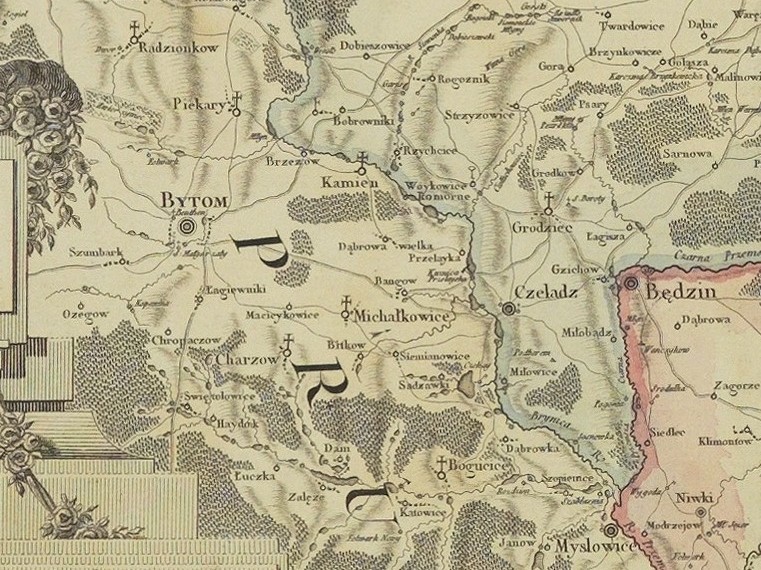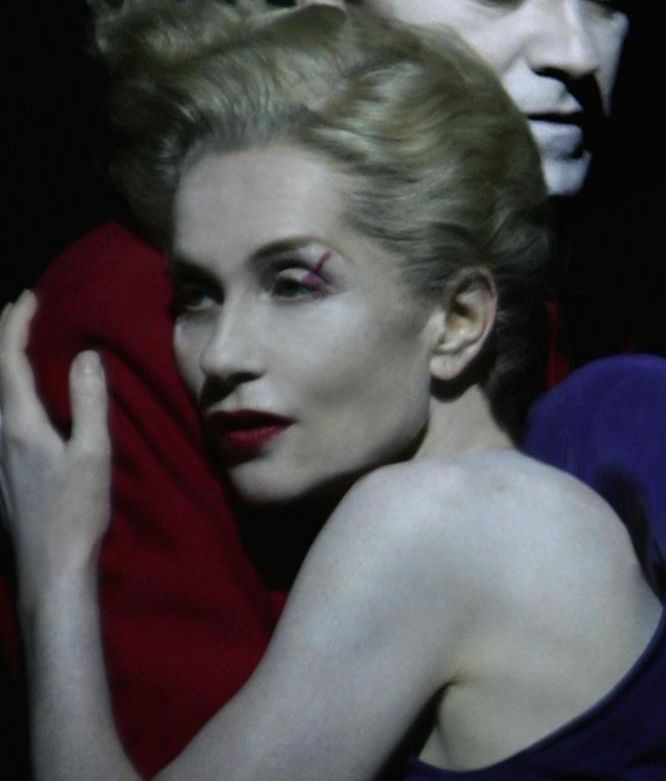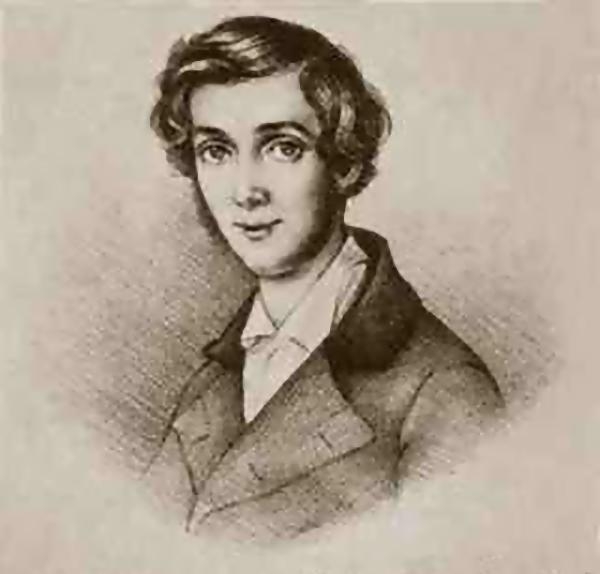|
Hanna Schygulla
Hanna Schygulla (; born 25 December 1943) is a German actress and chanson singer associated with the theater and film director Rainer Werner Fassbinder. She first worked for Fassbinder in 1965 and became an active participant in the New German Cinema. Schygulla won the 1979 Berlin Silver Bear for Best Actress for Fassbinder's ''The Marriage of Maria Braun'', and the 1983 Cannes Film Festival Award for Best Actress for the Marco Ferreri film ''The Story of Piera''. Early life Schygulla was born in Königshütte (now Chorzów, Poland) to German parents Antonie (' Mzyk) and Joseph Schygulla. Both the names Schygulla (also spelled Szyguła) and Mzyk are of Polish/ Silesian origin. Her father, a timber merchant by profession, was drafted as an infantryman in the German Army and was captured by American forces in Italy, subsequently being held as a prisoner of war until 1948. In 1945, Schygulla and her mother arrived as refugees in Munich, following the expulsion of the majority Ger ... [...More Info...] [...Related Items...] OR: [Wikipedia] [Google] [Baidu] |
Chorzów
Chorzów ( ; ; german: link=no, Königshütte ; szl, Chorzōw) is a city in the Silesia region of southern Poland, near Katowice. Chorzów is one of the central cities of the Upper Silesian Metropolitan Union – a metropolis with a population of 2 million. It is located in the Silesian Highlands, on the Rawa River (a tributary of the Vistula). Administratively, Chorzów is in the Silesian Voivodeship since 1999, previously Katowice Voivodeship, and before then, the Silesian Voivodeship. Chorzów is one of the cities of the 2.7 million conurbation – the Katowice urban area and within a greater Silesian metropolitan area with the population of about 5,294,000 people. The population within the city limits is 105,628 as of December 2021. History City name The city of Chorzów was formed in 1934–1939 by a merger of 4 adjacent cities: Chorzów, Królewska Huta, Nowe Hajduki and Hajduki Wielkie. The name of the oldest settlement ''Chorzów'' was applied to the amalgamated c ... [...More Info...] [...Related Items...] OR: [Wikipedia] [Google] [Baidu] |
Romance Languages
The Romance languages, sometimes referred to as Latin languages or Neo-Latin languages, are the various modern languages that evolved from Vulgar Latin. They are the only extant subgroup of the Italic languages in the Indo-European language family. The five most widely spoken Romance languages by number of native speakers are Spanish (489 million), Portuguese (283 million), French (77 million), Italian (67 million) and Romanian (24 million), which are all national languages of their respective countries of origin. By most measures, Sardinian and Italian are the least divergent from Latin, while French has changed the most. However, all Romance languages are closer to each other than to classical Latin. There are more than 900 million native speakers of Romance languages found worldwide, mainly in the Americas, Europe, and parts of Africa. The major Romance languages also have many non-native speakers and are in widespread use as linguae francae.M. Paul Lewis,Summary by l ... [...More Info...] [...Related Items...] OR: [Wikipedia] [Google] [Baidu] |
Jean-Luc Godard
Jean-Luc Godard ( , ; ; 3 December 193013 September 2022) was a French-Swiss film director, screenwriter, and film critic. He rose to prominence as a pioneer of the French New Wave film movement of the 1960s, alongside such filmmakers as François Truffaut, Agnès Varda, Éric Rohmer, and Jacques Demy. He was arguably the most influential French filmmaker of the post-war era. According to AllMovie, his work "revolutionized the motion picture form" through its experimentation with narrative, continuity editing, continuity, film sound, sound, and cinematography, camerawork. His most acclaimed films include ''Breathless (1960 film), Breathless'' (1960), ''Vivre sa vie'' (1962), ''Contempt (film), Contempt'' (1963), ''Bande à part (film), Band of Outsiders'' (1964), ''Alphaville (film), Alphaville'' (1965), ''Pierrot le Fou'' (1965), ''Masculin Féminin'' (1966), ''Weekend (1967 film), Weekend'' (1967), and ''Goodbye to Language'' (2014). During his early career as a film critic f ... [...More Info...] [...Related Items...] OR: [Wikipedia] [Google] [Baidu] |
Isabelle Huppert
Isabelle Anne Madeleine Huppert (; born 16 March 1953) is a French actress. Described as "one of the best actresses in the world", she is known for her portrayals of cold and disdainful characters devoid of morality. She is the recipient of several accolades, including two César Awards, five Lumières Awards, a BAFTA Award, three Cannes Film Festival honors, a Golden Globe Award, and an Academy Award nomination; in 2020, ''The New York Times'' ranked her second on its list of the greatest actors of the 21st century. Huppert's first César nomination was for the 1975 film '' Aloïse''. In 1978, she won the BAFTA Award for Most Promising Newcomer for ''The Lacemaker''. She went on to win two Best Actress awards at the Cannes Film Festival, for ''Violette Nozière'' (1978) and '' The Piano Teacher'' (2001), as well as two Volpi Cups for Best Actress at the Venice Film Festival, for '' Story of Women'' (1988) and ''La Cérémonie''. Her other films in France include '' Loulou'' ( ... [...More Info...] [...Related Items...] OR: [Wikipedia] [Google] [Baidu] |
Die Fälschung
''Circle of Deceit'' (German title: ''Die Fälschung''; French title: ''Le Faussaire'') is an anti-war film directed by Volker Schlöndorff and internationally released in 1981. An international co-production, it was an adaptation of Nicolas Born's novel of the same name, which had appeared in 1979. The film follows a German journalist sent to Beirut to report on the Lebanese Civil War, which had begun in 1975. Cast *Bruno Ganz as Georg Laschen *Hanna Schygulla as Ariane Nassar *Jerzy Skolimowski as Hoffmann *Jean Carmet as Rudnik *Gila von Weitershausen as Greta Laschen * Khaled El Sayed as Progressive Officer (uncredited) Story Journalist Georg Laschen (Bruno Ganz) is sent to Beirut, where he is supposed to report on the local civil war. His feelings about this mission are influenced by the fact that his marriage to his wife Greta (Gila von Weitershausen) back home is dysfunctional, and the conflict in Lebanon remains incomprehensible to him. He feels that his comments and his ... [...More Info...] [...Related Items...] OR: [Wikipedia] [Google] [Baidu] |
Volker Schlöndorff
Volker Schlöndorff (; born 31 March 1939 Friday) is a German film director, screenwriter and producer who has worked in Germany, France and the United States. He was a prominent member of the New German Cinema of the late 1960s and early 1970s, which also included Werner Herzog, Wim Wenders, Margarethe von Trotta and Rainer Werner Fassbinder. He won an Academy Awards, Oscar as well as the Palme d'Or at the 1979 Cannes Film Festival for ''The Tin Drum (film), The Tin Drum'' (1979), the film version of the novel by Nobel Prize in Literature, Nobel Prize-winning author Günter Grass. Early life Volker Schlöndorff was born in Wiesbaden, Germany to the physician Dr. Georg Schlöndorff. His mother was killed in a kitchen fire in 1944. His family moved to Paris in 1956, where Schlöndorff won awards at school for his work in philosophy. He graduated in political science at the University of Paris, Sorbonne, while at the same time studying film at the Institut des hautes études ci ... [...More Info...] [...Related Items...] OR: [Wikipedia] [Google] [Baidu] |
Bruno Ganz
Bruno Ganz (; 22 March 1941 – 16 February 2019) was a Swiss actor whose career in German stage, television and film productions spanned nearly 60 years. He was known for his collaborations with the directors Werner Herzog, Éric Rohmer, Francis Ford Coppola, and Wim Wenders, earning widespread recognition with his roles as Jonathan Zimmerman in ''The American Friend'' (1977), Jonathan Harker in ''Nosferatu the Vampyre'' (1979) and Damiel the Angel in ''Wings of Desire'' (1987). Ganz received renewed international acclaim for his portrayal of Adolf Hitler in the Oscar-nominated film '' Downfall'' (2004). He also had roles in several English-language films, including '' The Boys from Brazil'' (1978), '' Strapless'' (1989), ''Luther'' (2003), ''The Manchurian Candidate'' (2004), ''The Reader'' (2008), ''Unknown'' (2011), ''The Counselor'' (2013) and ''Remember'' (2015). On stage, Ganz portrayed Dr. Heinrich Faust in Peter Stein's staging of ''Faust, Part One'' and ''Faust, Part ... [...More Info...] [...Related Items...] OR: [Wikipedia] [Google] [Baidu] |
Berlin Alexanderplatz (miniseries)
''Berlin Alexanderplatz'' (), originally broadcast in 1980, is a 14-part West German crime television miniseries, set in 1920s Berlin and adapted and directed by Rainer Werner Fassbinder from Alfred Döblin's 1929 novel of the same name. It stars Günter Lamprecht, Hanna Schygulla, Barbara Sukowa, Elisabeth Trissenaar and Gottfried John. The complete series is 15 hours (NTSC and home media releases expand the runtime by half an hour). In 1983, it was released theatrically in the United States by TeleCulture, where a theatre would show two or three parts per night. It garnered a cult following there and was eventually released on VHS and broadcast on PBS and then Bravo. In 1985, it was transmitted in the United Kingdom on Channel 4. Episodes Synopsis "The Punishment Begins" Berlin, 1928. Franz Biberkopf is released after serving four years in Tegel prison for killing his girlfriend Ida. After settling into his old apartment he visits Minna, Ida's sister, and rapes her. I ... [...More Info...] [...Related Items...] OR: [Wikipedia] [Google] [Baidu] |
Silver Bear For Best Actress
The Silver Bear for Best Actress (german: Silberner Bär/Beste Darstellerin) was an award presented at the Berlin International Film Festival from 1956 to 2020. It was given to an actress who has delivered an outstanding performance and was chosen by the International Jury from the films in the Competition slate at the festival. Beginning with the 71st Berlin International Film Festival, the award was replaced with two gender-neutral categories, Silver Bear for Best Leading Performance and Silver Bear for Best Supporting Performance. At the 6th Berlin International Film Festival held in 1956, Elsa Martinelli was the first winner of this award for her performance in '' Donatella'', and Paula Beer was the last winner in this category for her role in ''Undine'' at the 70th Berlin International Film Festival in 2020. History The award was first presented in 1956, and can be for lead or supporting roles. The prize was not awarded on four occasions (1969, 1973–74, and 1990). In 197 ... [...More Info...] [...Related Items...] OR: [Wikipedia] [Google] [Baidu] |
29th Berlin International Film Festival
The 29th Berlin International Film Festival was held from 20 February – 3 March 1979. The Golden Bear was awarded to the West German film ''David'' directed by Peter Lilienthal. Michael Cimino's ''The Deer Hunter'' was surrounded by controversy, as it was accused of racism, and several countries decided to withdraw their films from the festival in protest. The retrospective was dedicated to Italian actor Rudolph Valentino and to another one titled "We Danced Around the World. Revue Films". Jury The following people were announced as being on the jury for the festival: * Jörn Donner, writer, director, screenwriter, actor and producer - Jury President (Finland) * Julie Christie, actress (United Kingdom) * Romain Gary, writer and screenwriter (France) * Ingrid Caven, actress and singer (West Germany) * Georg Alexander, (West Germany) * Liliana Cavani, director and screenwriter (Italy) * Paul Bartel, actor, director and screenwriter (United States) * Pál Gábor, director and ... [...More Info...] [...Related Items...] OR: [Wikipedia] [Google] [Baidu] |
Theodor Fontane
Theodor Fontane (; 30 December 1819 – 20 September 1898) was a German novelist and poet, regarded by many as the most important 19th-century German-language realist author. He published the first of his novels, for which he is best known today, only at age 58 after a career as a journalist. Fontane's novels are known for their complex, often sceptical view of society in the German empire; he shows different social and political parts of society meeting and sometimes clashing. Other trademarks of Fontane's work are their strongly drawn female characters (such as ''Effi Briest'' and ''Frau Jenny Treibel''), tender irony and vivid conversations between characters. Life Youth Fontane was born in Neuruppin, a town 30 miles northwest of Berlin, into a Huguenot family. At the age of sixteen he was apprenticed to an apothecary, his father's profession. He became an apothecary himself and in 1839, at the age of 20, wrote his first work (''Heinrichs IV. erste Liebe'', now lost). His ... [...More Info...] [...Related Items...] OR: [Wikipedia] [Google] [Baidu] |
Effi Briest
''Effi Briest'' is a realist novel by Theodor Fontane. Published in book form in 1895, ''Effi Briest'' marks both a watershed and a climax in the poetic realism of literature. It can be thematically compared to other novels on 19th century marriage from a female perspective, such as ''Anna Karenina'' and ''Madame Bovary'', which are also adultery tragedies. Plot introduction Seventeen-year-old Effi Briest, the daughter of a German aristocrat, is married off to 38-year-old Baron Geert von Innstetten, who courted her mother Luise and was spurned for his status, which he has now improved. Plot summary Effi Briest, who is attracted by social status, moves to the fictional Pomeranian port of Kessin (loosely modeled on Swinemünde). Her husband Innstetten is away for weeks at a time, and Effi, who is shunned by local nobles, finds but one friend. Her suspicions that their house may be haunted are not entirely laid to rest by Innstetten. When she says there may be a ghost, he deride ... [...More Info...] [...Related Items...] OR: [Wikipedia] [Google] [Baidu] |





